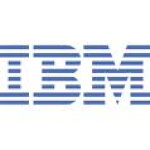- Industry: Computer
- Number of terms: 98482
- Number of blossaries: 0
- Company Profile:
Sometimes referred to as “Big Blue” IBM is a multinational corporation headquartered in Armonk, New York. It manufactures computer hardware and software and provides information technology and services.
(1) A random, unique text string that is encrypted along with data and then is used to detect attacks against the system that sends the encrypted data. A nonce is used especially for authentication and ensures that encrypted data is different each time that it is encrypted.<br />(2) A unique cryptographic number that is embedded in a message to help detect a replay attack.
Industry:Software
(1) A defined role in WebSphere Commerce that has access to all WebSphere Commerce Accelerator capabilities. See also expected inventory, expected inventory record.<br />(2) The role that supervises the overall store objectives and management, in addition to tracking the store sales. The seller role is equivalent to a merchant.
Industry:Software
(1) A real number represented by a pair of distinct numerals. The real number is the product of the fractional part, one of the numerals, and a value obtained by raising the implicit floating-point base to a power indicated by the second numeral.<br />(2) Either a 32-bit or 64-bit approximate representation of a real number. In IBM SQL, floating-point numbers do not include decimal floating-point numbers. See also double-precision floating-point number, single-precision floating point number, decimal floating-point number.
Industry:Software
(1) A defined set of characters with no coded representation assumed that can be recognized by a configured hardware or software system. A character set may be defined by alphabet, language, script, or any combination of these items.<br />(2) A set of binary codes that represent specific text characters.
Industry:Software
(1) A record having a length independent of the length of other records with which it is logically or physically associated. See also fixed-length record.<br />(2) In distributed data management (DDM) and Distributed FileManager (DFM), a record whose length can be changed after it has been written to a file. Variable-length records are normally used in reference to count-key-data (CKD) and extended count key data (ECKD) formats. See also fixed-length record.
Industry:Software
(1) A defined task that an application performs on an object as a result of an event.<br />(2) An access control list (ACL) permission attribute.<br />(3) A single step that specifies a unit of work in a collaboration business process. See also action node, activity, code fragment, collaboration template.<br />(4) The specification of an executable statement that forms an abstraction of a computational procedure. An action typically results in a change in the state of the system, and can be realized by sending a message to an object or modifying a link or a value of an attribute.<br />(5) In a policy-enabled system, a type of unsolicited decision that specifies the operation or set of operations to run when a policy is evaluated, selected, and executed. In Policy Management for Autonomic Computing, only a single operation is supported.<br />(6) An instruction in an artifact that defines a change management operation that needs to be performed in a hosting environment.<br />(7) A series of processing steps, such as document validation and transformation.<br />(8) In a business rule, the event that results from the evaluation of the condition.<br />(9) An activity that is run on a transition.
Industry:Software
(1) A record of the current state of the database environment.<br />(2) In Tivoli NetView, a copy of a map that reflects the topology and status of the map's nodes and links at a given moment in time.<br />(3) A copy of changed data in the active files and directories of a file system with the exception of the inode number, which is changed to allow application programs to distinguish between the snapshot and the active files and directories.
Industry:Software
(1) A definition of what must be true when a task or process starts.<br />(2) A textual description defining a constraint on the system when a use case may start.<br />(3) A constraint that must be true when an operation is invoked.<br />(4)
Industry:Software
(1) A record of the processing of a computer program or transaction. The information collected from a trace can be used to assess problems and performance.<br />(2) A DB2 for z/OS facility that provides the ability to collect monitoring, auditing, performance, accounting, statistics, and serviceability (global) data.<br />(3) In the Unified Modeling Language (UML), a dependency that indicates a historical or process relationship between two elements that represent the same concept without specific rules for deriving one from the other.<br />(4) In DB2 replication, a facility that is used to collect monitoring, auditing, and performance data for the Capture program, the Q Capture program, the Apply program, the Q Apply program, or the Replication Alert Monitor.<br />(5) To record data that provides a history of events occurring in the system.
Industry:Software
(1) A dependent foreign key table of a given table.<br />(2) A dependent foreign key table of a descendent foreign key table of a given table. See also dependent foreign key table.
Industry:Software
